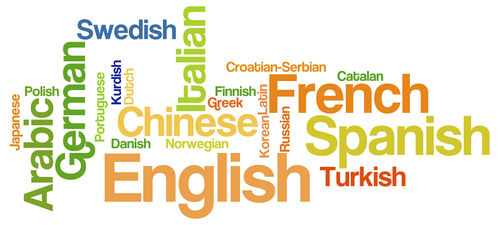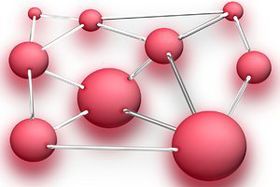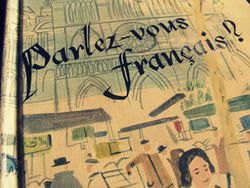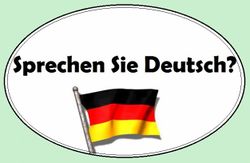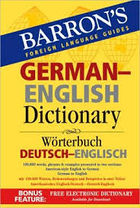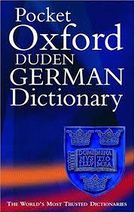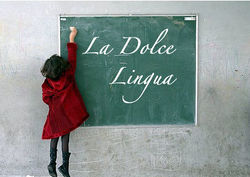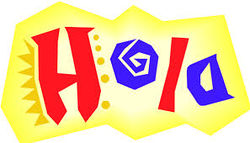Difference between revisions of "Category:Languages"
| Line 13: | Line 13: | ||
The page: '''Languages''' lists (in alphabetical order) the many languages of scholarly and fictional works in the field of Second Temple Judaism (Jewish, Christian and Islamic Origins), from the mid-15th century to the present. | The page: '''Languages''' lists (in alphabetical order) the many languages of scholarly and fictional works in the field of Second Temple Judaism (Jewish, Christian and Islamic Origins), from the mid-15th century to the present. | ||
* '''[[Languages]]''' : [[English language|English]] -- [[French language|French]] -- [[German language|German]] -- [[Italian language|Italian]] -- [[Spanish language|Spanish]] -//- [[Afrikaans language|Afrikaans]] -- [[Albanian language|Albanian]] -- [[Arabic language|Arabic]] -- [[Armenian language|Armenian]] -- [[Bulgarian language|Bulgarian]] -- [[Catalan language|Catalan]] -- [[Chinese language|Chinese]] -- [[Croatian language|Croatian]] -- [[Czech language|Czech]] -- [[Danish language|Danish]] -- [[Dutch language|Dutch]] -- [[Estonian language|Estonian]] -- [[Farsi language|Farsi]] -- [[Finnish language|Finnish]] -- [[Flemish language|Flemish]] -- [[Greek language|Greek]] -- [[Hebrew language|Hebrew]] -- [[Hungarian language|Hungarian]] -- [[Icelandic language|Icelandic]] -- [[Japanese language|Japanese]] -- [[Korean language|Korean]] -- [[Latin language|Latin]] -- [[Latvian language|Latvian]] -- [[Lithuanian language|Lithuanian]] -- [[Maltese language|Maltese]] -- [[Norwegian language|Norwegian]] -- [[Polish language|Polish]] -- [[Portuguese language|Portuguese]] -- [[Romanian language|Romanian]] -- [[Russian language|Russian]] -- [[Serbian language|Serbian]] -- [[Slovak language|Slovak]] -- [[Slovenian language|Slovenian]] -- [[Swedish language|Swedish]] -- [[Ukrainian language|Ukrainian]] -- [[Welsh language|Welsh]] -- [[Yiddish language|Yiddish]] | |||
* '''[[Timeline]]''' : [[2020s]] -- [[2010s]] -- [[2000s]] -- [[1990s]] -- [[1980s]] -- [[1970s]] -- [[1960s]] -- [[1950s]] -- [[1940s]] -- [[1930s]] -- [[1920s]] -- [[1910s]] -- [[1900s]] -- [[1850s]] -- [[1800s]] -- [[1700s]] -- [[1600s]] -- [[1500s]] -- [[1450s]] | |||
In the Middle Ages and Early modern times Latin was the international language of scholarship in Europe, also in the study of Jewish, Christian and Islamic Origins. The vernacular languages had at first more relevance in the development of national literature, poetry and dramas. Italian in particular established itself in the 17th and 18th centuries as the international language of music and opera. If the emergence of national schools can be traced back to the Reformation, it was the Enlightenment and the Napoleon Era that launched French as the new international language of scholarship and caused the rapid demise of Latin. In the 19th and early 20th century German and English also raised as distinguished languages in the critical historical and philological study of the Bible. After World War II and especially with the computer revolution of the 1990s, English has established itself as the dominant world language, while the globalization of higher education has stimulated the production of works in countries and languages that never before had a tradition in the field, and even boosted the international usage of languages (like Spanish) which are rooted in the some of the most dynamic emerging countries. | In the Middle Ages and Early modern times Latin was the international language of scholarship in Europe, also in the study of Jewish, Christian and Islamic Origins. The vernacular languages had at first more relevance in the development of national literature, poetry and dramas. Italian in particular established itself in the 17th and 18th centuries as the international language of music and opera. If the emergence of national schools can be traced back to the Reformation, it was the Enlightenment and the Napoleon Era that launched French as the new international language of scholarship and caused the rapid demise of Latin. In the 19th and early 20th century German and English also raised as distinguished languages in the critical historical and philological study of the Bible. After World War II and especially with the computer revolution of the 1990s, English has established itself as the dominant world language, while the globalization of higher education has stimulated the production of works in countries and languages that never before had a tradition in the field, and even boosted the international usage of languages (like Spanish) which are rooted in the some of the most dynamic emerging countries. | ||
Revision as of 05:31, 15 November 2019
|
In the Middle Ages and Early modern times Latin was the international language of scholarship in Europe, also in the study of Jewish, Christian and Islamic Origins. The vernacular languages had at first more relevance in the development of national literature, poetry and dramas. Italian in particular established itself in the 17th and 18th centuries as the international language of music and opera. If the emergence of national schools can be traced back to the Reformation, it was the Enlightenment and the Napoleon Era that launched French as the new international language of scholarship and caused the rapid demise of Latin. In the 19th and early 20th century German and English also raised as distinguished languages in the critical historical and philological study of the Bible. After World War II and especially with the computer revolution of the 1990s, English has established itself as the dominant world language, while the globalization of higher education has stimulated the production of works in countries and languages that never before had a tradition in the field, and even boosted the international usage of languages (like Spanish) which are rooted in the some of the most dynamic emerging countries.
Fields of research
|
2010s -- 2000s -- 1990s -- 1980s -- 1970s -- 1960s -- 1950s -- 1940s -- 1930s -- 1920s -- 1910s -- 1900s -- 1850s -- 1800s -- 1700s -- 1600s -- 1500s -- 1400s
2010s -- 2000s -- 1990s -- 1980s -- 1970s -- 1960s -- 1950s -- 1940s -- 1930s -- 1920s -- 1910s -- 1900s -- 1850s -- 1800s -- 1700s -- 1600s -- 1500s
2010s -- 2000s -- 1990s -- 1980s -- 1970s -- 1960s -- 1950s -- 1940s -- 1930s -- 1920s -- 1910s -- 1900s -- 1850s -- 1800s -- 1700s -- 1600s -- 1500s -- 1450s
2010s -- 2000s -- 1990s -- 1980s -- 1970s -- 1960s -- 1950s -- 1940s -- 1930s -- 1920s -- 1910s -- 1900s -- 1850s -- 1800s -- 1700s -- 1600s -- 1500s -- 1400s
2010s -- 2000s -- 1990s -- 1980s -- 1970s -- 1960s -- 1950s -- 1940s -- 1930s -- 1920s -- 1910s -- 1900s -- 1850s -- 1800s -- 1700s -- 1600s -- 1500s -- 1400s |
Pages in category "Languages"
The following 43 pages are in this category, out of 43 total.
